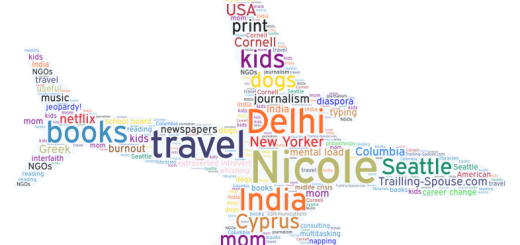Persuading Amazonians that we still need libraries

Although many people still think of libraries as warehouses of books, as INFO 287: The Hyperlinked Library’s lectures and readings have stated, “the library is everywhere” and “built for people, not books” (Stephens, 2024). An MLIS class is already highly receptive to this messaging, however. The true test is whether we can demonstrate a public library’s importance for the voters and policymakers in IT strongholds like the Bay Area and Seattle — or as I call this region, Amazonia.
In INFO 287, Module 3’s readings, we were asked, “Do we need libraries?” (Denning, 2015). This question may be rhetorical among academia and information science students/professionals, but it’s not going away. A few years later, the same publication ran — then withdrew under heavy backlash — a prominent economist’s proposal that taxpayers could save money by allowing libraries to be replaced by companies like Amazon (Peet & Yorio, 2018).
The hyperlinked librarian response seems to be twofold: libraries are needed for many community-serving reasons beyond serving as book warehouses — and yet, books must remain a core part of the mission “to make people happy” (Leferink, 2018). Kind of tricky, no?
Hyperlinked bookstores vs. libraries
Nearly 20 years ago, when I was a local newspaper reporter in the Bay Area, I was flummoxed by the overnight emergence of a major campaign among residents — including folk singer Joan Baez! — to save Kepler’s Books, an independent bookstore in the affluent town of Menlo Park, California (Baxter, 2022). This was still early days for Amazon, but convenience of ordering books online had found a foothold in this tech-savvy region, compounding the impact caused by the huge selections and competitive prices available at large chain stores. Meanwhile, the town’s two libraries had suffered reduced hours and staffing for years, without any type of uprising of this nature. Surely if a bookstore deserved to be saved, the public library — which provides far more services, for free, to anyone — merited at least similar consideration? I couldn’t resist hinting at this discrepancy in my follow-up coverage of the successful “Save Kepler’s” campaign (Neroulias, 2006). In hindsight, the library management at the time had not made a strong enough case that they existed for people, not books (Stephens, 2024).
A Google search today reveals that Kepler’s Books remains alive and well — with a colorful website, special events, and an engaging membership model that seems similar to the hyperlinked library approach — open at 10 a.m. every day until 6 p.m. Sundays and Mondays, 8 p.m. Tuesdays and Saturdays, and 9 p.m. Wednesday to Friday. To my surprise, the Menlo Park library system is also now open seven days a week, noon to 8 p.m. Mondays through Wednesdays, 10 a.m. to 6 p.m. Thursdays to Sundays. It seems the community ultimately rallied around both types of “palaces for the people” (Klinenberg, 2018).
You don’t know what you got ’til it’s gone?
Seven hundred miles north, deep in the heart of Amazonia, the Seattle Public Library recently suffered a ransomware attack that took its systems down — including the ability for patrons to check out books online and download materials via Libby to their ubiquitous Kindles. This serious inconvenience has lasted for weeks, but I wonder if it’s also done the library system a huge favor, by reminding patrons of how much they use the library and encouraging them to stop by a branch in person (where check-out has still been possible via apologetic librarians using spreadsheets, offline computers, and even pen and paper).
Indeed, subsequent comments on media reporting of the attack (Seattle Times Staff, 2024) have skewed largely positive. “We are very lucky and the library has been a love of mine since childhood. Whenever I go to my branch, the staff are so helpful and polite.” “The librarians at my local branch have been wonderful during this time. I have checked out 2 books – no problem! Hoping the best for the system and we are back at 100% soon. I am being a patient library user!” “Thank a librarian this week!” Quite a change from the egg on the library system’s face a few years ago, when a pricy rebranding plan had to be partly scrapped due to public outrage (Kenney, 2015).
Perhaps this will lead to more in-person library visits lasting for more than a few minutes, on a wider scale than the perception of visitors as either caregivers seeking weekly story times for young children, homeless patrons seeking shelter, bathrooms, and computer access, or people stopping by sporadically for specific events. The attack has also resulted in increased collaboration with neighboring library systems, which have made it easier for Seattle’s bibliophiles to register for their cards online despite not having local addresses and join activities such as summer reading programs; perhaps this can be the start of a hyperlinked library model for all of western Washington.
Budgets permitting, it would be amazing to see Amazonia’s libraries truly embrace and be appreciated for their roles as creators and facilitators of connections. We have a long journey ahead, if the ideal destination is the Aarhus, Denmark Dokk1 library’s bell-ringing tradition to celebrate each new birth in the community (Zorthian, 2019).
Featured image by Adam Winger on Unsplash.
Text by @nicole287.
References
Baxter, R. K. (2022). Kepler’s Books: A story of a local business and the membership economy. The Membership Economy. McGraw-Hill Education. https://robbiekellmanbaxter.com/keplers-books-a-story-of-a-local-business-and-the-membership-economy/
Denning, S. (2015, April 18). Do we need libraries? Forbes. https://www.forbes.com/sites/stevedenning/2015/04/28/do-we-need-libraries
Kenney, B. (2015, Nov. 13). Lessons from Seattle’s failed bid to rebrand its public library. Publisher’s Weekly. https://www.publishersweekly.com/pw/by-topic/industry-news/libraries/article/68666-brand-awareness-lessons-from-seattle-s-failed-bid-to-rebrand-its-public-library.html
Klinenberg, E. (2018, Sept. 24). Palaces for the people: why libraries are more than just books. The Guardian. https://www.theguardian.com/cities/2018/sep/24/palaces-for-the-people-at-the-library-everyone-is-welcome
Leferink, S. (2018, Jan. 24). To keep people happy … keep some books. OCLC Blog. https://blog.oclc.org/next/to-keep-people-happy-keep-some-books/
Neroulias, N. (2006, Feb. 4). Kepler’s launches new marketing. East Bay Times. https://www.eastbaytimes.com/2006/02/24/keplers-launches-new-marketing/
Peet, L. & Yorio, K. (2018, July 22). Forbes article sparks impassioned defense of libraries. Library Journal. https://www.libraryjournal.com/story/forbes-article-sparks-impassioned-defense-of-libraries
Stephens, M. (2024, June). INFO 287: The hyperlinked library (video lectures). San Jose State University. https://287.hyperlib.sjsu.edu/course-modules/
Seattle Times Staff. (2024, June 12). Seattle library system to restore e-book access after ransomware attack. The Seattle Times. https://www.seattletimes.com/seattle-news/seattle-library-system-to-restore-e-book-access-after-ransomware-attack/
Zorthian, J. (2016, August 19). Look inside the most cutting edge public library in the world. Time.https://time.com/4458185/denmark-library-cutting-edge-dokk1

